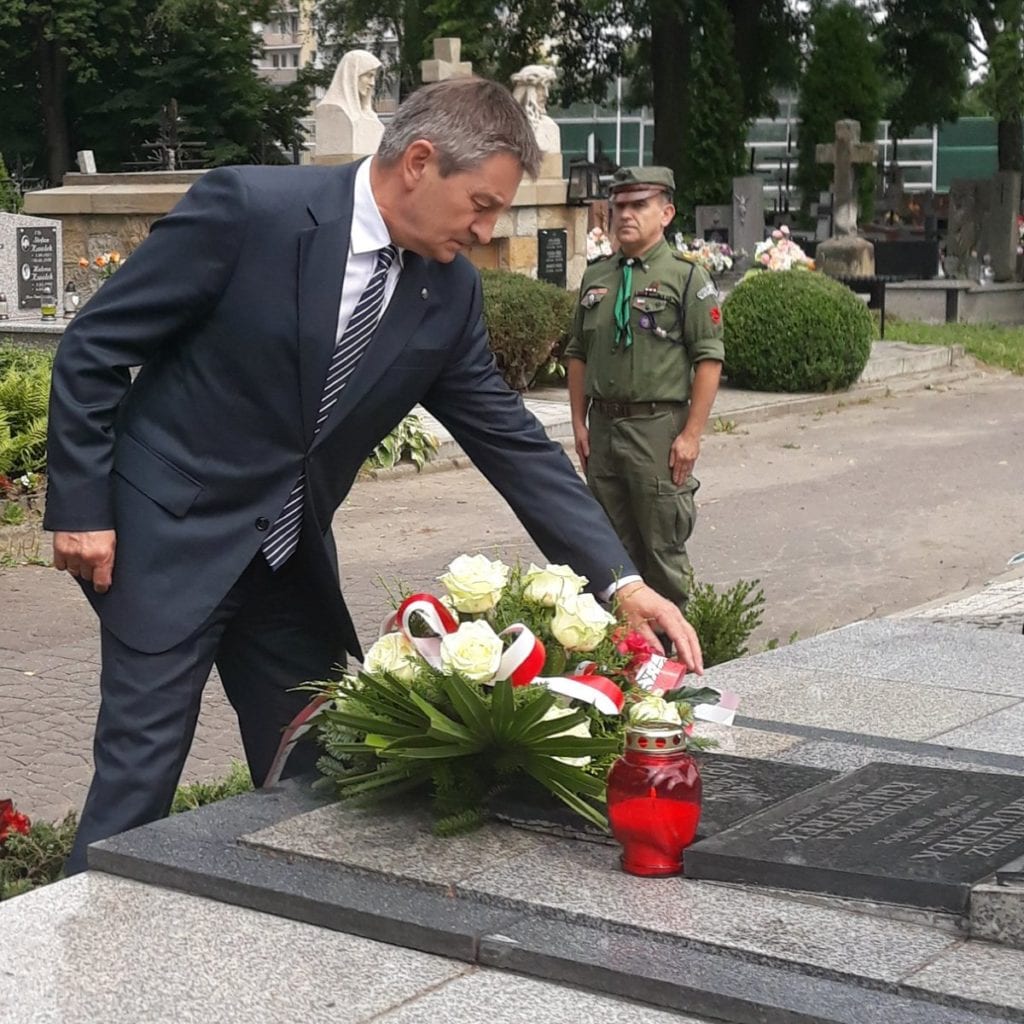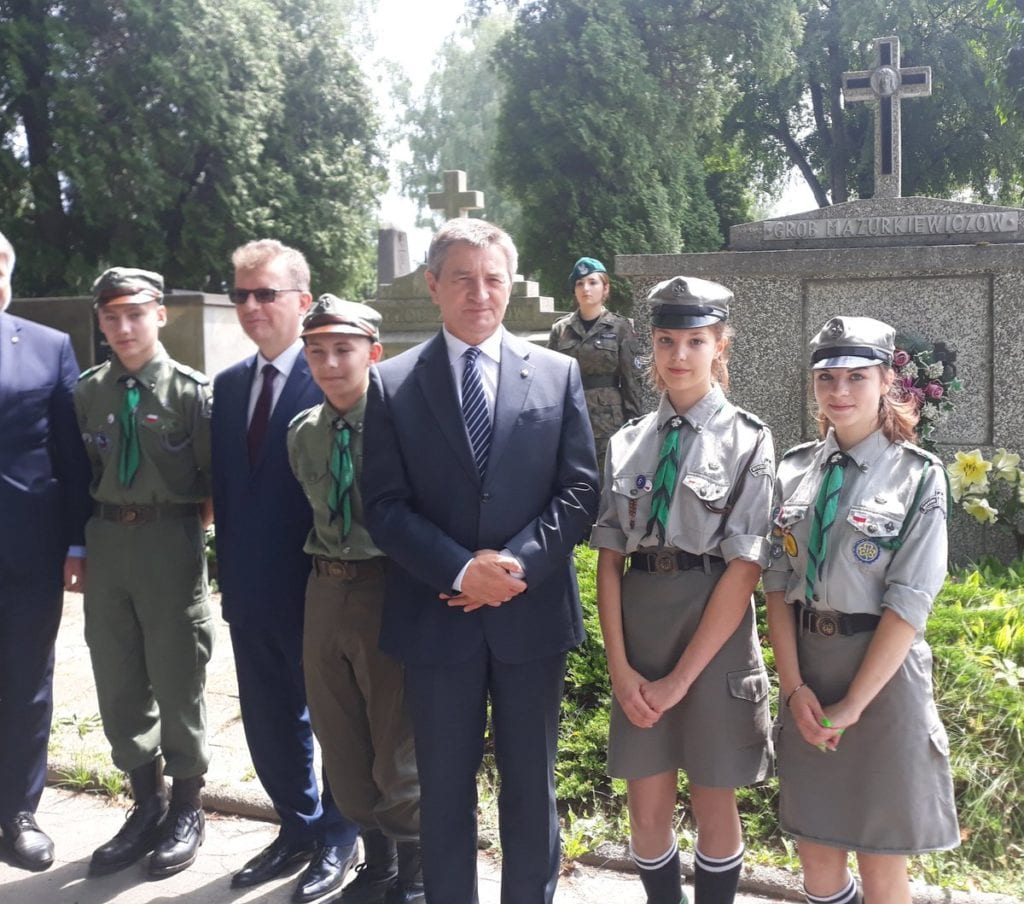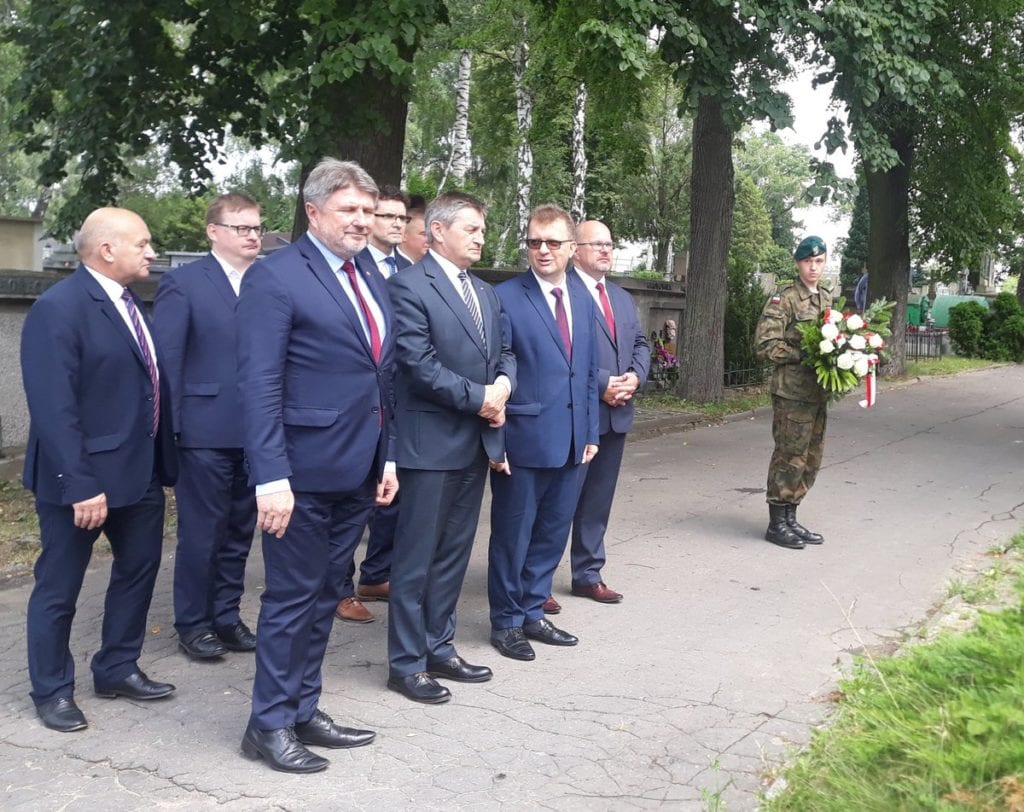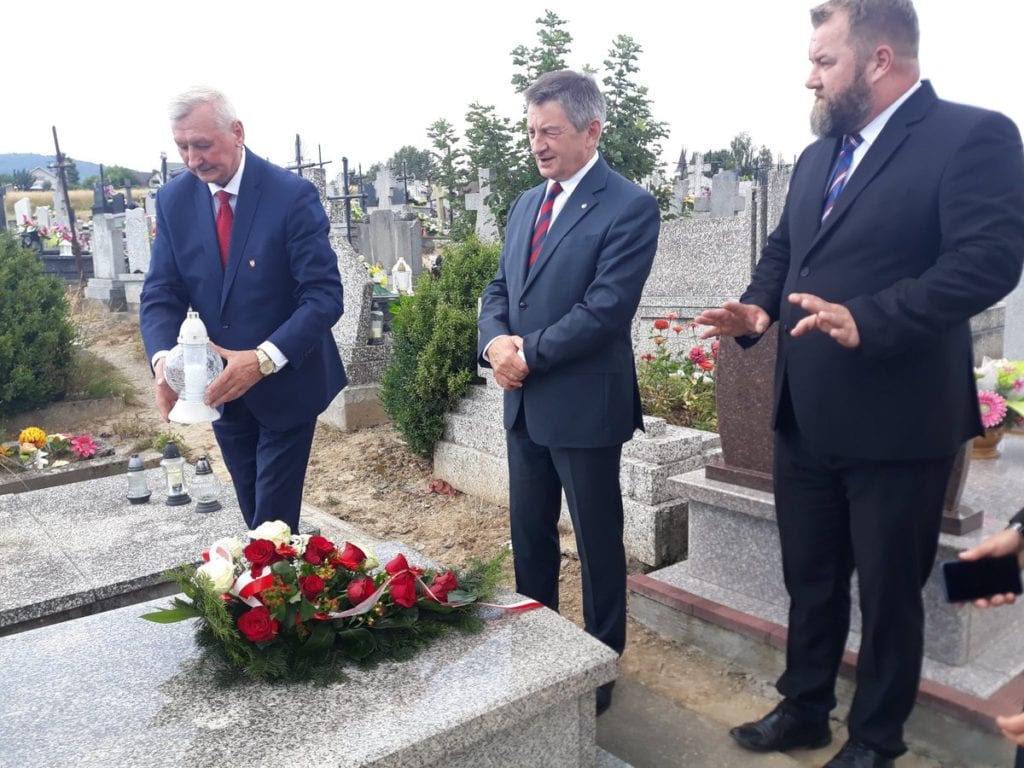On 20-21 July, the Speaker of the Sejm Marek Kuchciński visited the graves of the Members of Parliament (MPs) buried in the cemeteries in Krosno and Brzyski in the Podkarpacie Province who were elected to the Parliament during the time of the independent Second Republic. On Saturday, he laid flowers on the graves of Jan Stapiński, Jędrzej Krukierek, Wincenty Jabłoński and Józef Jurczyk (Krosno), while on Sunday he honored Jakub Madej and Jan Madajczyk buried in Brzyska.
After honoring the parliamentarians of the interwar period, Marek Kuchciński reminded about the celebrated in 2019. 100th anniversary of the Legislative Sejm. - We recommended all parliamentarians to take care of the graves of MPs in their areas, especially of the Legislative Sejm. Here, in Krosno, we are here to commemorate this anniversary and the Members of Parliament who sat one hundred years ago in the Sejm of the reborn great Republic of Poland," emphasized the Speaker of the Sejm in an interview with journalists. - Wincenty Jabłoński and Jan Stapiński are distinguished Members of Parliament. The first one is a meritorious social activist and nationalist, the second one is a representative and one of the founders of the Polish People's Party (Polskie Stronnictwo Ludowe), serving as the party's chairman before the First World War. Outstanding Members of Parliament. We believe that remembrance of the former parliamentarians is the right way. We should act, thinking about our predecessors, who have served for the good of the Republic of Poland. They should be honoured also in modern times", added Marshal Kuchciński.
At the wreath-laying ceremony the Marshal of the Sejm was accompanied by the MPs Piotr Babinetz and Bogdan Rzonecka as well as local government officials.
Buried in Krosno, MP Vincent Jablonski He was a doctor of laws and a graduate of Lvov University, as well as an entrepreneur and a social activist. For many years he was a judge and co-founder of the Sanok branch of the People's School Society. Before he was elected to the Legislative Sejm, he was a deputy to the Austrian State Council and the Galicia State Sejm. He belonged to the National Democratic Party. In the Sejm of 1919-1922, he was a member of the Constitutional Labor Club.
Jan Stapinski During the Second Polish Republic he was a member of the Legislative Sejm and the Second Sejm in the Jasło, Krosno and Sanok districts. Known as one of the founders and leaders of the peasant movement in Galicia. He refused to get involved in the pro-communist People's Party.
Józef Jurczyk He sat in the Sejm of the third term from 1930 to 1935. He was a long-time local government activist in the Krosno district. From 1930, he was a member of the BBWR. During the occupation he was a member of the Union for Armed Struggle. Arrested by the Gestapo, he died after being tortured.
Jedrzej Krukierek He was an industrialist, mayor and a social and independence activist connected with Krosno. He revitalized and developed the health resort Żegiestów. He was a BBWR deputy to the Sejm of the second term (1928-1930), also buried in Krosno.
Members of Parliament are buried at the cemetery in Brzyski Jan Madejczyk and Jakub Madej. The first of them was a long-time local government and social activist, involved in the reconstruction of independent Poland. He was one of the leaders of the peasant movement. He served as an MP between 1922 and 1935. Jakub Madej, on the other hand, was elected to the Legislative Sejm and its second term in 1928-1930. He was known as an activist of the left wing of the peasant movement. His political patron and mentor was Jan Stapiński.
CIS






